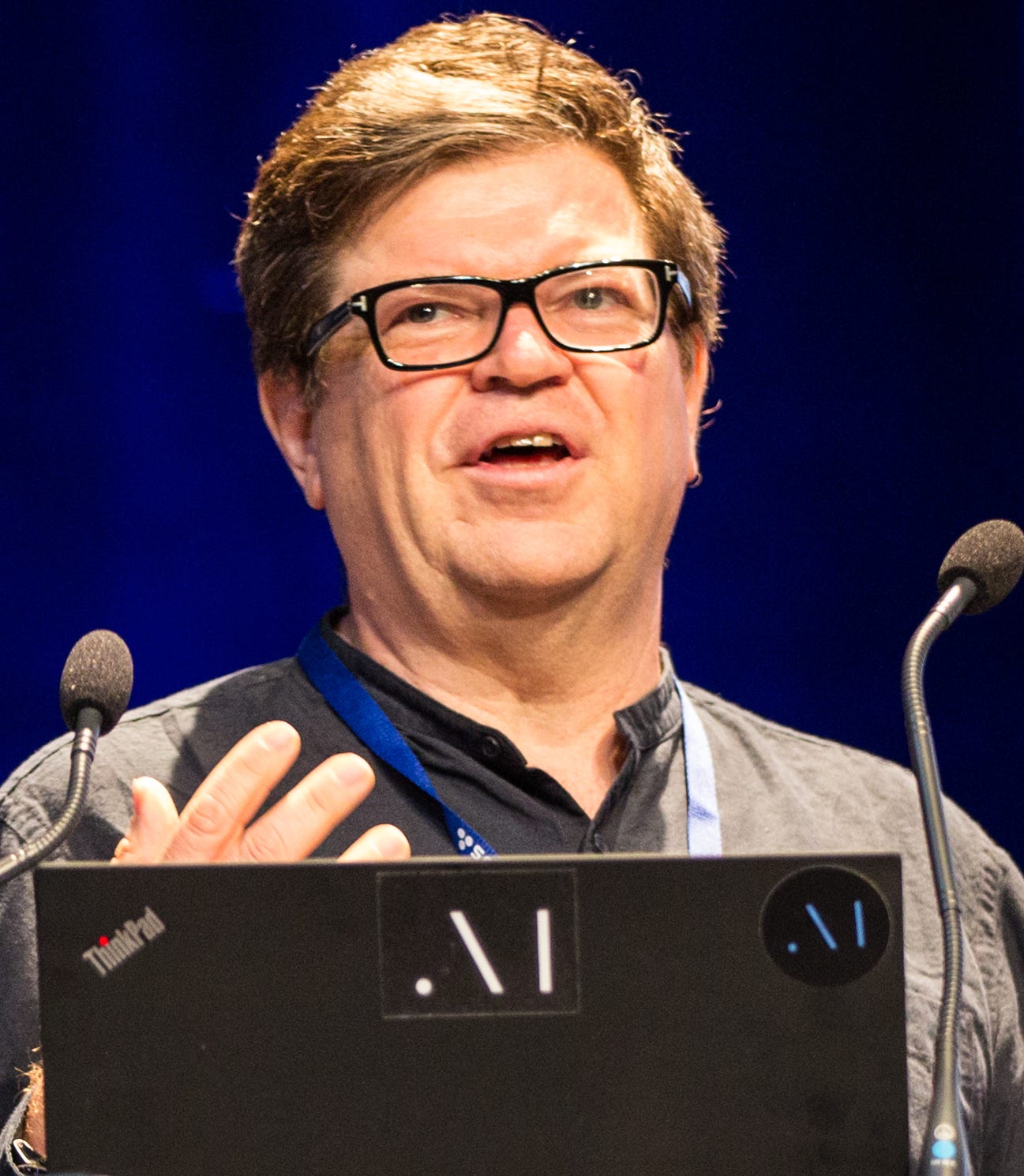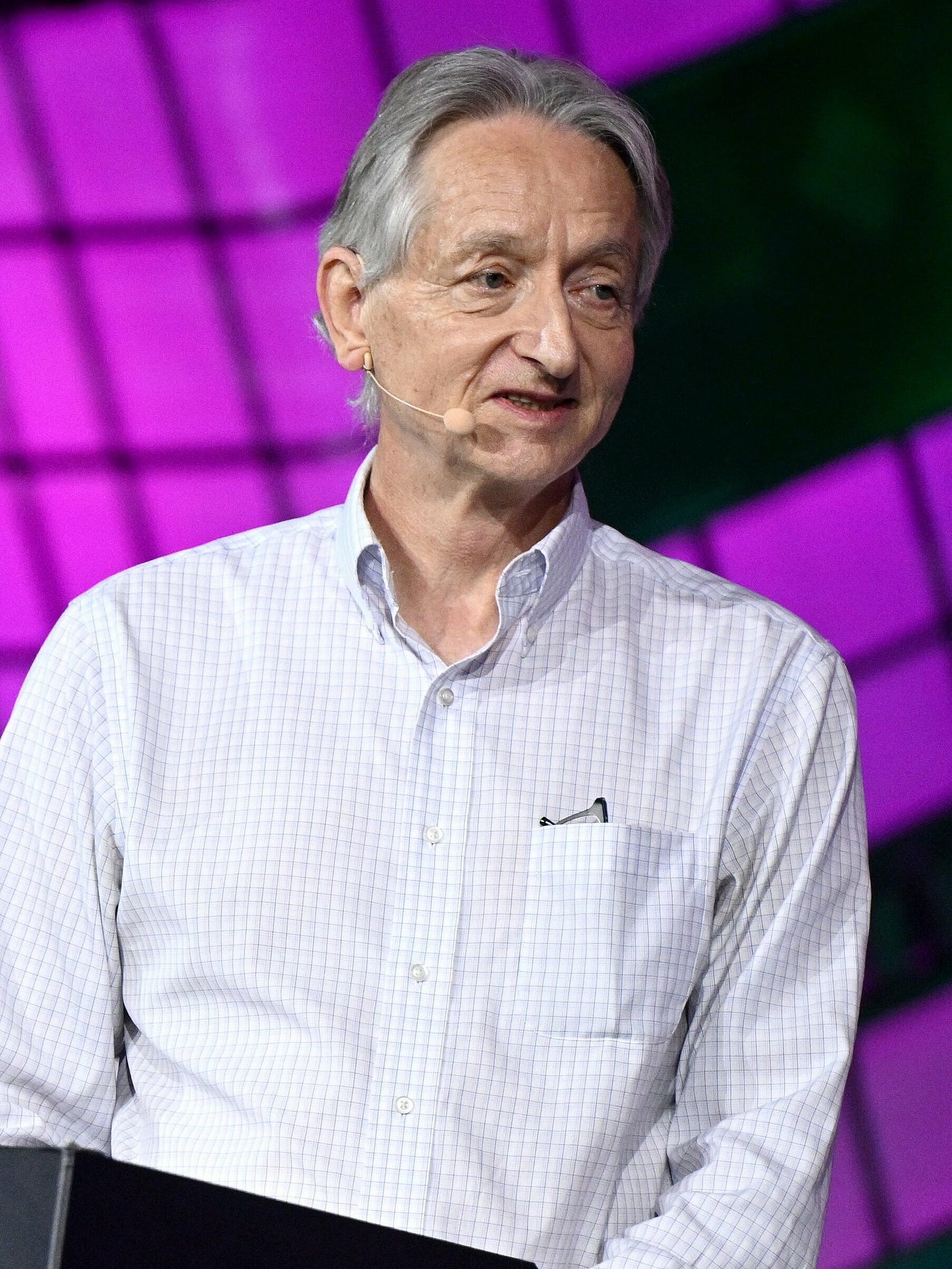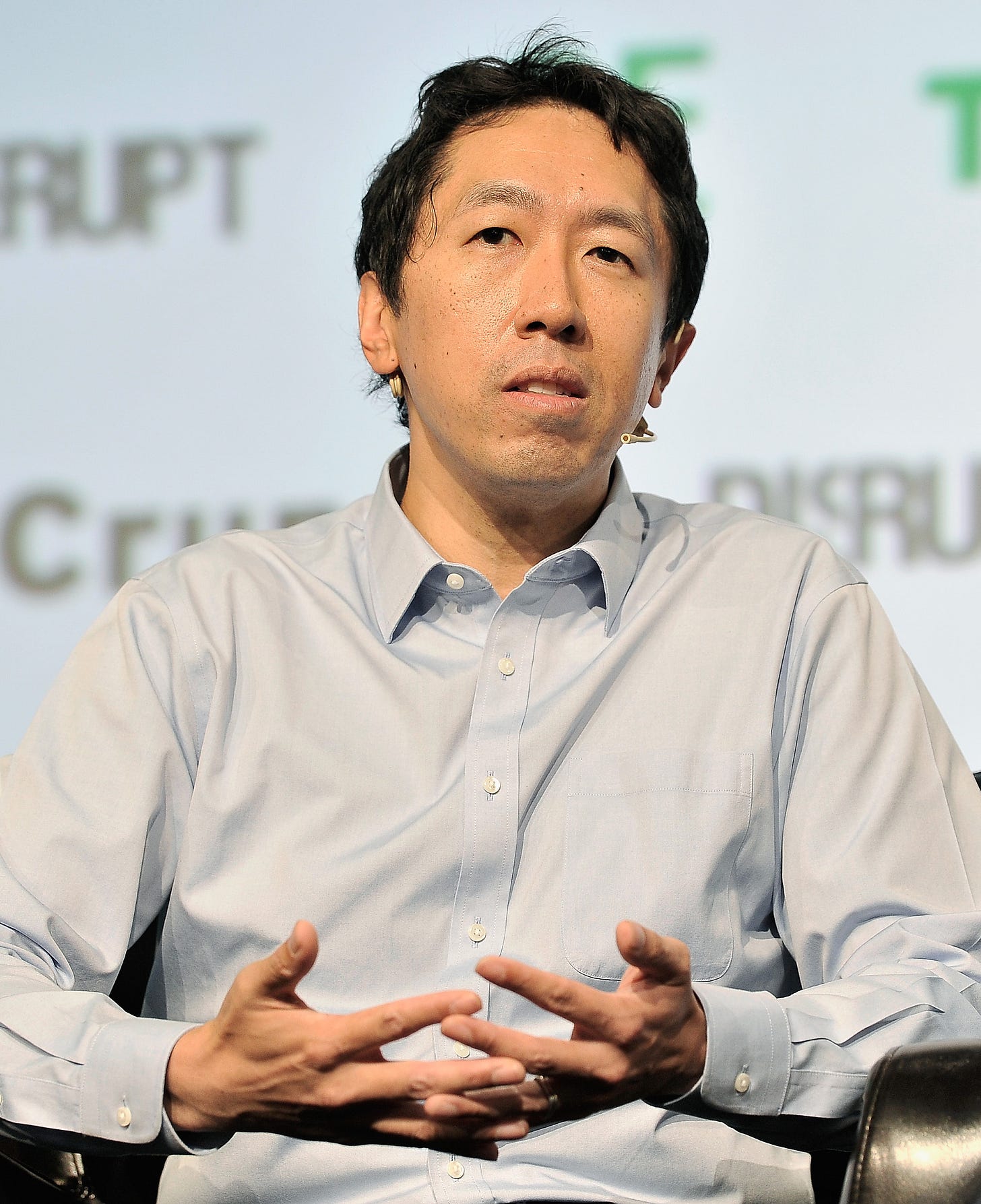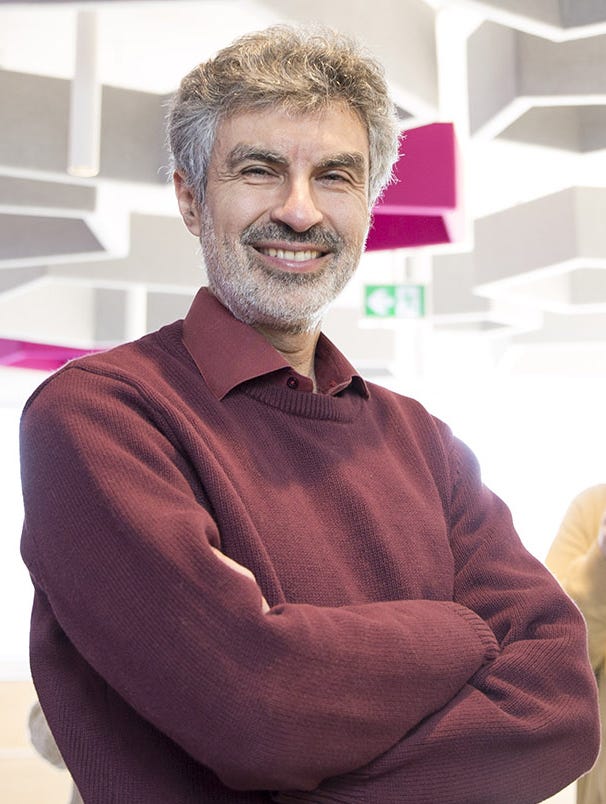Cross Validated Issue #4: What Do AI Pioneers Think About AI's Future? 🔮
LeCun, Hinton, Bengio, Hassabis, Ng - Visionaries Reflect on AI's Evolution
Welcome back! In this issue, let’s dive into the minds of the trailblazers who crafted the very foundations of artificial intelligence.
Table of Contents
What Do AI Pioneers Think About AI's Future?
In Case You’re Wondering Who We Are
AI Recap: Essential News You Might Have Missed
What Do AI Pioneers Think About AI's Future? 🔮
LeCun, Hinton, Bengio, Hassabis, Ng - Visionaries Reflect on AI's Evolution
Numerous key figures have driven the remarkable growth of artificial intelligence over the past decade. In this article, we'll focus on the 'founding fathers' of AI: Yann LeCun, Geoffrey Hinton, Yoshua Bengio, Demis Hassabis, and Andrew Ng, exploring their perspectives on the future of AI.

Yann LeCun
Renowned for receiving the ACM A.M. Turing Award, Yann LeCun is a pioneer in AI, specifically in deep learning and convolutional neural networks, which are fundamental to modern computer vision and speech recognition. He serves as the Director of AI Research at Facebook and holds multiple professorships at New York University, contributing significantly to the development of neural network algorithms.
LeCun envisions AI as a "shared infrastructure" and advocates for open source AI platforms. He sees AI assistants as future mediators of digital interaction, storing human knowledge and culture. LeCun is optimistic about AI, disagreeing with fears of AI dominance over humanity.
“All interactions with the digital world will be mediated by AI assistants… They will constitute a repository of all human knowledge and culture”
Yann LeCun
Geoffrey Hinton
As a professor at the University of Toronto and a researcher at Google Brain, Geoffrey Hinton is a key figure in the development of artificial neural networks and machine learning algorithms. He co-invented the backpropagation algorithm and has contributed to a wide range of neural network research topics. His work has earned him numerous prestigious awards, including the Turing Award.

Hinton raises concerns about AI risks, especially with large language models like GPT-4. He believes these models may soon surpass human intelligence and fears their potential misuse in critical areas like elections and wars.
"I think it's important that people understand that this is not science fiction, this is not just fear mongering, it is a real risk that we must think about, and we need to figure out in advance how to deal with it."
Georffrey Hinton
Yoshua Bengio
Recognized globally as a leading expert in AI and a pioneer in deep learning, Yoshua Bengio has been a professor at the Université de Montréal since 1993 and is the founder and scientific director of Mila in Quebec. He has received numerous accolades, such as the A.M. Turing Award and the title of Knight of the Legion of Honor of France, for his contributions to AI.
Bengio has revised his timeline for AI achieving human-level cognitive competence, now believing it could be within a few years to decades. He emphasizes the need for policy and countermeasures to mitigate AI risks, including international regulation and keeping AI away from military and biosecurity applications.
“… it started to dawn on me that my previous estimates of when human-level AI would be reached needed to be radically changed. Instead of decades to centuries, I now see it as 5 to 20 years with 90% confidence.”
Yoshua Bengio
Demis Hassabis
Demis Hassabis, the co-founder and CEO of DeepMind, is known for developing AlphaGo and for his contributions to AI research. He is also an accomplished player in games like chess, shogi, and poker, having won the World Games Championships at the Mind Sports Olympiad five times. His achievements in AI have earned him multiple awards, including the Breakthrough Prize in Life Sciences.

Hassabis recognizes AI's risks and opportunities, advocating for global prioritization in mitigating AI risks. He calls for "guardrails" in AI to address alignment, controllability, and interpretability issues, and emphasizes the need for international cooperation.
“Not everybody is thinking about those things. It’s like experimentalists, many of whom don’t realize they’re holding dangerous material.”
Demis Hassabis
Andrew Ng
A globally recognized leader in AI, Andrew Ng is the founder of DeepLearning.AI, Landing AI, and Coursera, and serves as an Adjunct Professor at Stanford University. He is celebrated for founding and leading the Google Brain project, which advanced deep learning algorithms, most notably showing that Google’s 16 thousand computer processors can learn to identify cats from YouTube videos.

Ng compares AI's transformative potential to electricity and highlights supervised learning and Generative AI as key tools. He sees AI's potential in various sectors and addresses ethical concerns, viewing AI as a solution to challenges like climate change and healthcare.
“I think that AI will lead to a low cost and better quality life for millions of people. Like electricity, it's a possibility to build a wonderful society.”
Andrew Ng
In Case You’re Wondering Who We Are ❓:
Recently, a very interesting thing happened to two people from opposite sides of the Earth. They, Enoch and Livia, grew up in Hong Kong and New York, respectively, but met at Columbia Road Flower Market in London, UK. Fast forward a year, and the couple were in a taxi on the way to Brooklyn, New York’s municipal building, where sits the Marriage Bureau.
This was a dynamic duo indeed; Enoch, the Machine Learning Engineer, had proposed on a radiant, sunset-lit New York rooftop just days before, and Livia, the Copywriter, had accepted with a rehearsed, two-minute speech in Cantonese. They were to become a most happily married couple, surrounded by a proud family of supporters.
As time would tell, the couple’s talents were made to grow in confluence. They joked about founding a newsletter, but stopped laughing as soon as it became their new reality. Their newsletter, called “Cross Validated,” is a big project that requires weekly tending to. So as we push out our fourth issue, we are not necessarily smiling, but still definitely engaged with our work.
A bit about Enoch
Enoch has over five years of expertise in machine learning and software engineering. He currently serves as the ML Lead at Kognitiv, where he oversees the design and execution of machine learning pipelines. Before this, he developed algorithms for smart socket applications and worked on software engineering projects in digital mammography.
Enoch completed his Master’s of Science in Computer Engineering at Marquette University with a full scholarship. He researched the use of Generative Adversarial Networks (GANs) in medical image segmentation, presenting and publishing his findings. Prior to this, Enoch undertook a Bachelor of Science at University of Minnesota, Twin Cities.
A bit about Livia
Born and raised in Manhattan, New York, Livia bridges the Atlantic as an Editor, Copywriter, and Content Manager. Between various assignments in the United Kingdom and United States, Livia has developed expertise in tech-focused copy for startups. Livia holds a Master’s of Science from the London School of Economics and a Bachelor of Arts from Brown University. She contributes copy in a variety of technical areas, including Web3 and AI.
AI Recap: Essential News You Might Have Missed 📢
Amazon to Launch AI Business Chatbot Named Q to Compete with Rivals
Amazon has announced its plan to introduce a business chatbot named Q, powered by generative artificial intelligence (GenAI). This move comes as a response to the growing popularity of chatbots from competitors like OpenAI, Microsoft, and Google. These GenAI tools are capable of writing text that resembles human work, and Amazon's Q aims to streamline communication, synthesize content, and assist employees with various tasks.
Read more: Amazon to launch AI business chatbot named Q (Sky News)
Millions of New Materials Discovered with Deep Learning
DeepMind, in collaboration with the Lawrence Berkeley National Laboratory, has unveiled a groundbreaking achievement in materials science. Their AI tool called GNoME has discovered a staggering 2.2 million new crystals, including 380,000 stable materials with the potential to power future technologies. This significant advancement demonstrates the potential of AI in accelerating materials discovery and opens up new possibilities for developing greener technologies, superconductors, and more efficient batteries.
Read more: Millions of new materials discovered with deep learning (DeepMind)
Sports Illustrated Faces Controversy Over Authorship of Articles Amid AI Usage
Sports Illustrated has come under scrutiny for using a third-party company, AdVon Commerce, to produce articles for its website under the bylines of non-existent authors. While the magazine initially denied that artificial intelligence was involved in writing the articles, an investigation revealed that AI-generated content was indeed used. The controversy highlights the challenges faced by media companies experimenting with AI, emphasizing the importance of transparency in journalism.
Read more: Sports Illustrated is the latest media company damaged by an AI experiment gone wrong (Associated Press)
British AI Startup Stability AI Explores Sale Amid Investor Pressure
Stability AI, a British artificial intelligence startup known for its Stable Diffusion image generator, has reportedly explored the possibility of selling the company in response to mounting pressure from investors concerning its financial situation. This move comes after Coatue Management, one of Stability's major investors, called for the CEO's resignation due to concerns about leadership and financial stability. While discussions with potential buyers have taken place, no deal is imminent, and the company has stated that it remains focused on releasing leading AI models despite the overtures.
Read more: Fresh off an Intel investment, Stability AI looks for buyers as investors pressure CEO to resign (Fortune)
Samsung Employees Accidentally Share Confidential Data with OpenAI's ChatGPT
Employees at Samsung have reportedly shared confidential data with OpenAI's ChatGPT, despite the company's warning against sharing sensitive information with the chatbot. This alleged leak occurred shortly after Samsung lifted a ban on ChatGPT, which had been put in place to prevent data leaks. The shared information reportedly included the source code of software related to semiconductor equipment measurement, raising concerns about privacy and security in the use of AI chatbots.
Read more: ChatGPT tied to Samsung’s alleged data leak (Cybernews)







